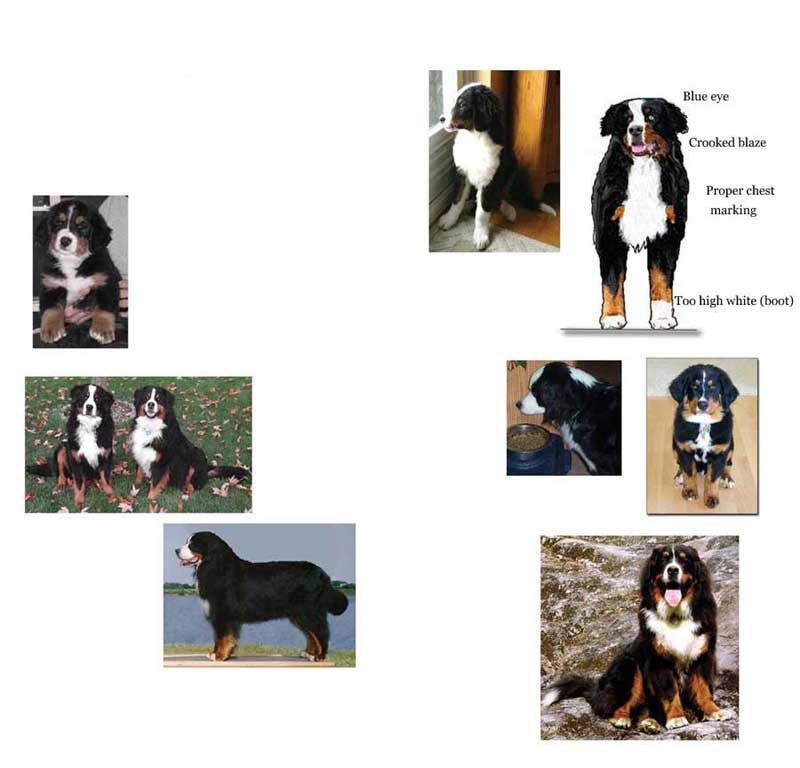
"Perfectly marked" is a aesthetic consideration within the bigger picture of virtues that make up a Bernese Mountain Dog. Black bands across the chest (harnesses), white legs, white extending above the pastern (boots),
It is not uncommon to see markings variations. Markings have not been observed to affect dogs' ability to function.
The breed standard describes the Bernese Mountain dog as tri-colored. The ground color is jet black. The markings are rich rust and clear white. Symmetry of markings is desired. Rust appears over each eye, on the cheeks reaching to at least the corner of the mouth, on each side of the chest, on all four legs, and under the tail.
There is a white blaze and muzzle band. A white marking on the chest typically forms an inverted cross. The tip of the tail is white. White on the feet is desired but must not extend higher than the pasterns. Markings other than described are to he faulted in direct relationship to the extent of the deviation. White legs or a white collar are serious faults. Any ground color other than black is a disqualification.
It is important for beeders to pay attention to markings heritability tendencies in selecting dogs for breeding. The reality is "perfectly marked" Bernese may produce offspring that are not "perfectly marked" and visa versa.
white patches on the nape of the neck (Swiss kisses), white collars (historically known as Ringgis), brown feet, freckles, and asymmetrical markings are seen in Bernese.
Color and Markings